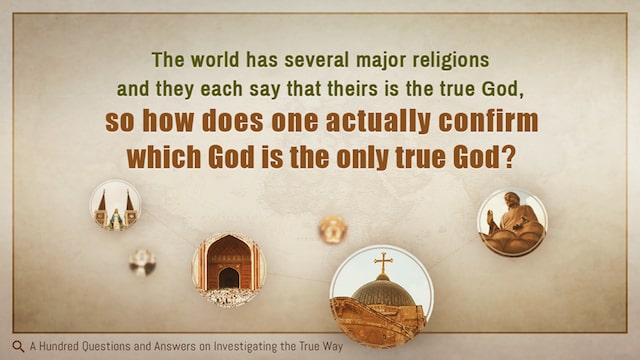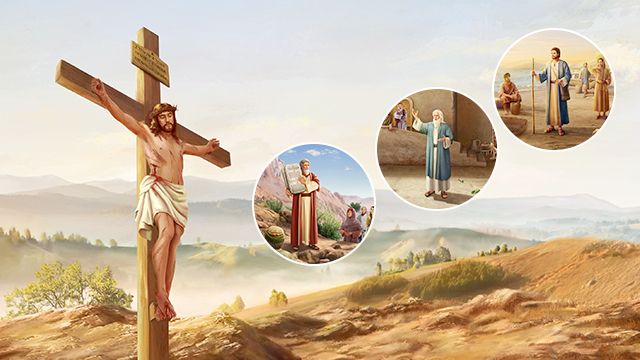
In the Age of Grace, John paved the way for Jesus. He could not do the work of God Himself and merely fulfilled the duty of man. Though John was the forerunner of the Lord, he could not represent God; he was only a man used by the Holy Spirit. Following the baptism of Jesus, “the Holy Spirit descended upon Him like a dove.” He then began His work, that is, He began to perform the ministry of Christ. That is why He assumed the identity of God, for He came from God. No matter the manner of His faith before this—perhaps sometimes it was weak, or sometimes it was strong—that was all His normal human life before He performed His ministry. After He was baptized (anointed), He immediately had the power and the glory of God with Him, and thus began to perform His ministry. He could work signs and wonders, perform miracles, He had power and authority, as He worked directly on behalf of God Himself; He did the work of the Spirit in His stead and expressed the voice of the Spirit; therefore He was God Himself. This is indisputable. John was used by the Holy Spirit. He could not represent God, and it was not possible for him to represent God. If he had wished to do so, the Holy Spirit would not have allowed it, for he could not do the work that God Himself intended to accomplish. Perhaps there was much in him that was of man’s will, or there was something deviant in him; under no circumstances could he directly represent God. His mistakes and erroneousness represented only himself, but his work was representative of the Holy Spirit. Yet, you cannot say that all of him represented God. Could his deviation and erroneousness represent God as well? To be erroneous in representing man is normal, but if he had deviation in representing God, then would that not be a dishonor to God? Would that not be blasphemy against the Holy Spirit? The Holy Spirit does not allow man to stand in God’s place at will, even if he is exalted by others. If he is not God, then he would be unable to remain standing in the end. The Holy Spirit does not allow man to represent God as man pleases! For instance, the Holy Spirit bore witness to John and also revealed him to be the one to pave the way for Jesus, but the work done in him by the Holy Spirit was well measured. All that was asked of John was to be the way-paver for Jesus, to prepare the way for Him. That is to say, the Holy Spirit only upheld his work in paving the way and allowed him only to do such work, no other. John represented Elijah, the prophet who paved the way. This was upheld by the Holy Spirit; as long as his work was to pave the way, the Holy Spirit upheld it. However, if he had laid claim to be God Himself and come to finish the work of redemption, the Holy Spirit must discipline him. However great the work of John, and be it upheld by the Holy Spirit, his work remained within boundaries. It is indeed true that his work was upheld by the Holy Spirit, but the power given him at the time was limited to his paving the way. He could not, at all, do any other work, for he was only John who paved the way, and not Jesus. Therefore, the testimony of the Holy Spirit is key, but the work man is permitted to do by the Holy Spirit is even more crucial. Was John not greatly witnessed of? Was not his work also great? But the work he did could not surpass that of Jesus, for he was no more than a man used by the Holy Spirit and could not directly represent God, and thus the work he did was limited. After he finished the work of paving the way, none continued to uphold his testimony, no new work again followed him, and he departed as the work of God Himself began.






